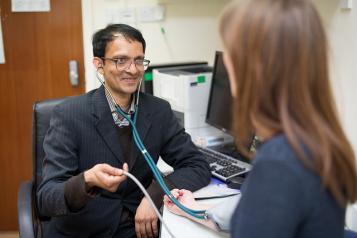Making it easier for Deaf people to share their views
Deaf people have often had to fight for equal access to health and care services. It is getting better - but we want to help health and care services understand what care is like for you.
Accessible Information for Deaf people
Deaf people are entitled to the same level of information about their health or social care as a hearing person.
- If you are Deaf, you should get the communication support you want (for example an interpreter or speech-to-text reporter).
- And information should be given in an accessible format, e.g., test results sent by SMS or emails in plain English.
You know, it is really hard. With the GP, I’ve been in an appointment, and they’ve written down the information and it’s just gone over my head a bit, but actually, English isn’t my first language. It’s actually been quite difficult.
Tell us about your experience
Our Healthwatch wants to know about your experiences of using local health and care services. This includes things like doctors’ appointments, visiting the dentist and getting care in your home.
Has the pandemic made it easier or harder to get information about your health and care? Or to get the care that you or your family need?
I am deaf and restricting [the GP] service to virtually phone only is discriminatory and means I feel I cannot access [the] service. Contrarily I had a gall bladder removal last summer at Peterborough City Hospital where I [was] treated exceptionally well from start to finish. My chemist has also been helpful and friendly and deaf aware.
About the Accessible Information Standard
The Accessible Information Standard sets out how health and social care services must - in law - meet the information needs of people using their services.
It aims to make sure that people who have a disability, impairment or sensory loss are communicated with in a way that meets their needs.


